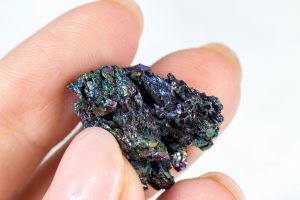Trump’s Recent Tirade Lands Again On EV Supporters: “Rot In Hell”

Sign up for daily news updates from CleanTechnica on email. Or follow us on Google News!
The classy guy that he is, Trump used the holiday season to repeat his antagonism toward EV supporters. This time, the former US president used the unlikely occasion of Christmas — a time of giving, joy, and twinkling lights — to attack adherents of “Electric Car Lunacy.” His Christmas wish to these EV supporters? “ROT IN HELL.”
The EV group joined a long list of other notables bundled as “THUGS” in Trump’s harangue. Together, they were depicted as more “evil” and “sick” than all the world’s leaders. These disparate groups, Trump claimed in his litany of grievances, are “looking to destroy our once great USA.”
“AGAIN, MERRY CHRISTMAS!” Trump added sardonically, yelling in all caps. The diatribe was posted on (Un)Truth Social.
MSNBC called the message “unhinged.” Salon described the post as a “meltdown.”
Trump has always been a contradiction in terms. A multimillionaire, he boasts of fighting elitism. His supercharged populist calls to rise up against electrifying transportation is little more than his own brand of elitism. Fueling culture wars as Trump does reinforces a disconnect between optimism for the 2023 resurgence in jobs and their direct connection to an enhanced quality of life, versus pounding pessimism that only a return to a proverbial golden era will soothe (disgruntled primarily white males) in the US.
EV supporters are caught in the middle of the political upheaval.
Trump directed a national policy shift when he was elected president. He diverged from his predecessor’s approach to energy, including EVs. Rather than addressing practical concerns such as EV consumer safety or associated national security risks by phasing out fossil fuels, Trump saw that China was heavily supporting its EV sector. Thus, the Trump administration rolled back key national policy that provided a pathway toward a low emissions economy without offering up any alternatives.
Remember a few months ago when, instead of joining a debate with 7 Republican candidates vying for the position of party presidential nominee, Trump decided to visit a non-union auto parts plant in Michigan? During the stop, Trump excoriated the Biden administration for its push toward transportation electrification. He erupted then that “Biden’s job-killing EV mandate” would create a labor landscape in which “40% of all US auto jobs will disappear.” He also intimated an EV conspiracy was underway: “People have no idea how bad this is going to be also for the environment.” The UAW doesn’t agree.
On other occasions he’s called out EVs as a “hoax” and President Joe Biden’s tax credits for electric cars and trucks made in the US as “a transition to hell.”
Other than the often funny and partially hurtful nasty-grams, Trump’s attacks on EVs make the upcoming 2024 US presidential election pivotal. The quest for equitable electrification means that US power brokers need to focus policy decisions and investment opportunities on creating meaningful entry points for people from all walks of life. All indications are that Trump has no intention of cushioning the transition to low emissions transportation. As Chad Brown writes as part of the Peterson Institute for International Economics:
“EVs are but one example of the challenge facing partners with integrated supply chains and similar levels of economic development that share concerns about climate change, rising inequality, workers, other social issues, and democracy itself.”
Behind-the Scenes: Vitriol toward EV Supporters
As internal combustion cars account for around a quarter of global oil demand and broader road transport accounts for nearly half, the exponential growth of EVs puts all of that oil demand at risk. Oil demand for cars peaked in 2019 and will be falling by at least 1 million barrels per day (mbpd) every year after 2030, eliminating expected growth in oil demand for ICE cars. If self-reports are accurate, 54% of internal combustion engine (ICE) vehicle drivers are interested in switching to an EV for their next vehicle purchase or lease.
But it’s not only consumers who are undergoing a mindset switch about EVs. It’s also automakers, original equipment manufacturers (OEMs), governments, major utility providers, and others who have moved in their thinking to at least a lukewarm and somewhat welcoming embrace of EVs. It’s taken a confluence of ideas, events, people, and investment to create the EV ecosystem that is increasingly evident around the world.
At the beginning of 2023, US Energy Secretary Jennifer Granholm said at CES the Biden administration “is focused totally on bringing down the costs of energy for people” and noted that vehicle owners are saving $35 on average to recharge an EV versus filling up a traditional gas tank. Yes, 90% of current automobile owners will spend less if they switch to an EV. That makes sense, right? While the upfront costs of EVs do exceed the average cost of an ICE vehicle, the cost of ownership over the life of an EV is less.
Moreover, an exposé by Elaine Buckberg, a Stanford University Fellow, lays out a very compelling scenario for the interaction between EVs and the US economy. “The promise of electric vehicles is twofold,” according to Buckberg, “reducing both environmental and economic risk” and leading to “a win-win” situation for the US. The transition to EVs is projected to have such a positive effect due to:
- reducing the US economy’s vulnerability to oil-related geopolitical risk and oil price shocks; and,
- improving battery and charging technology, so that batteries are being manufactured with less energy, have greater charging capacity, and will be more able to be recycled. Places like the US Department of Energy have been pumping millions of R&D dollars into new technologies that are making EV batteries charge faster and last longer while also improving safety.
Late out of the EV gate, many automakers are scrambling to transition to electrified fleets. Yet even imprecise long term electrification planning by GM now points to sector profitability by 2025.
A savvy politician might embrace a more neutral position than Trump has about EVs, perhaps pointing to the recent warm consumer embrace of plug-in hybrid vehicles. Then again, once EV chargers are as ubiquitous as gas pumps are now, the EVs vs. hybrids contest will end — hybrids, with dual engines and two sets of likely problems, will fade into memory. Concern for the planet will triumph with all-electric vehicles, but so, too, will fun, tech, total cost of ownership, and sheer driving pleasure.
Final Thoughts about EV Supporters & Other “Thugs”
In a December 21 memo, Biden campaign manager Julie Chavez Rodriguez portrayed Trump’s candidacy as a threat to democracy. “He is running a campaign on revenge and retribution – and at the expense of Americans’ freedoms,” she wrote.
The day after Christmas, Trump proudly posted again, this time sharing the results of a poll commissioned by DailyMail.com. The poll asked voters to supply a word they most associate with Trump’s plans for a second term. The results, stylized as a word cloud, indicated that “revenge” was the most popular choice. “Power,” “dictatorship,” “economy,” and “America” also tallied in the Top 5 responses.
Deconstructing the US democracy seems to give Trump great holiday joy, eh? While the ongoing adoption of EVs is essential to ward off climate pollution, the integrity of US democracy is even more crucial.
Have a tip for CleanTechnica? Want to advertise? Want to suggest a guest for our CleanTech Talk podcast? Contact us here.
Our Latest EVObsession Video
https://www.youtube.com/watch?v=videoseries
I don’t like paywalls. You don’t like paywalls. Who likes paywalls? Here at CleanTechnica, we implemented a limited paywall for a while, but it always felt wrong — and it was always tough to decide what we should put behind there. In theory, your most exclusive and best content goes behind a paywall. But then fewer people read it!! So, we’ve decided to completely nix paywalls here at CleanTechnica. But…
Thank you!
CleanTechnica uses affiliate links. See our policy here.






